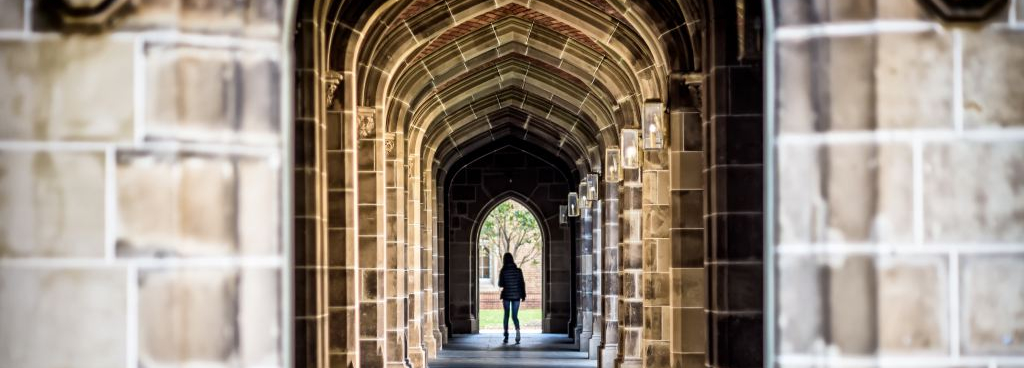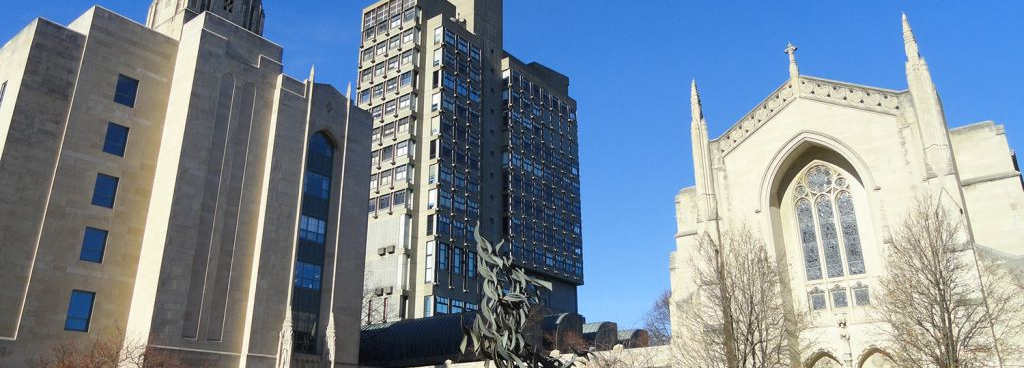Students who are starting to research undergraduate programs can easily be overwhelmed by information. It’s not just a matter of which schools to apply to, but which type. Different types of colleges and universities offer different campus environments, class sizes, and program offerings, among other things.
Let’s examine the different types of U.S. colleges you may come across.
What Is the Difference Between a College and a University?
While you may think the terms are interchangeable, there is a difference between colleges and universities, particularly when it comes to types of degrees and program offerings. Universities are larger institutions that offer undergraduate and graduate programs. Colleges are usually smaller and focus only on undergraduate programs.
As you make your list of best-fit schools, you should consider the size of the campus. Are you looking for a large campus with a wide range of offerings or a smaller campus with a more intimate atmosphere? You may find it helpful to compare college sizes and weigh the pros and cons of each. Be sure to include both small and large campuses on your college tours so you get an accurate feel of campus life for each size of school.
University vs. College: Which One Is Better?
Each student must decide for themselves if a university or college is better. Are you looking for a large student body and a broad range of programs and opportunities? Universities are likely to be a better fit for you. Do you prefer smaller class sizes and more personalized attention from your professors? Then you should focus on getting into a college.
Regardless of your preference, we recommend making a balanced list of 13-15 institutions that meet your needs. IvyWise founder and CEO Dr. Kat Cohen explains that having a balanced college list means that “some schools need to be in the reach category, some schools in the target category, and some schools in the likely category.”
Understanding the Types of Colleges
We already explained the differences between colleges and universities — now we can break down the different college types. It’s worth knowing these distinctions so you can decide which type of institution is right for you and best suited to your desired career path.
Public and Private Colleges
The biggest difference between public and private institutions is that public colleges are funded by the government, while private colleges receive their funding through endowments, private donations, and tuition. You will often find that tuition costs are higher at private colleges — though financial aid packages tend to be more generous — and it may be more difficult to gain admission. Admission rates at private colleges, especially the Ivy League schools, are notoriously low, leaving many students wondering how to get into Princeton and other highly-selective schools.
Public colleges tend to offer a broader range of college programs and might be slightly easier to gain admission. That said, while public colleges tend to have higher admit rates, there are still highly selective public schools like the University of California at Berkeley.
Two-Year and Four-Year Colleges
Two-year colleges offer certificate and associate degree programs and focus more on the student’s chosen area of study. Four-year colleges offer bachelor’s degree programs and require students to complete general education requirements in addition to courses in their chosen field of study.
Universities
Universities are four-year institutions that offer both undergraduate and graduate programs. You can opt for a public university, which often has a larger student body and larger class sizes to match. Private universities tend to be more selective in who they admit, so fewer students are enrolled, meaning smaller class sizes.
For-Profit and Nonprofit Colleges
For-profit colleges operate to make a profit for their owners and shareholders. They are owned by private enterprises and operate like businesses. Tuition rates at for-profit schools are typically higher than public institutions, and many of them lack regional accreditation.
Nonprofit colleges are more traditional institutions. The profits they generate are reinvested back into their academic programs and operations.
Liberal Arts Colleges
Liberal arts colleges offer four-year degree programs in liberal arts disciplines like the humanities, social sciences, and even science. These schools focus on providing a well-rounded education that can be applied to a wide range of careers after graduation and attract intellectually curious students who desire a smaller campus community.
Community Colleges
Community colleges are public, two-year schools that offer certificate and associate degree programs. Tuition is generally more affordable, so many students complete two years at a community college and then transfer their credits to a four-year college or university to finish their degree. Learn all about the differences between community colleges and 4-year colleges.
Vocational Colleges
Also known as career or trade schools, vocational colleges focus on training students for a specific job by offering hands-on learning. Students often complete these programs in less than two years. Vocational colleges train students for careers as dental assistants, paralegals, veterinary assistants, electricians, pharmacy technicians, plumbers, welders, and more.
Colleges with a Special Focus
These types of schools may not be as common as the others listed above, but you may come across them as you research schools.
- Religious colleges: These colleges and universities are affiliated with a religious faith and sometimes a specific denomination.
- Art colleges: Art schools emphasize the study and practice of artistic disciplines like sculpture, photography, illustration, fashion design, photography, and more.
- Single-sex colleges: These private colleges admit only men or only women.
- Specialized mission colleges: These colleges are focused on educating underrepresented students. Examples include historically Black colleges and universities (HBCU) and Hispanic-serving institutions (HSIs).
- Tribal colleges and universities: Also known as TCUs, these colleges serve Native Americans and are predominantly located on or near reservations.
- Military academies: These institutions offer an undergraduate education while preparing students for military service after graduation. Tuition and fees are waived in exchange for the student’s commitment to military service for a minimum of five years.
Now that you know the various types of colleges, learn how to get into USC.
It can be challenging to navigate through the college admissions process, but our expert counselors can help you every step of the way. Schedule an Initial Consultation to learn how IvyWise can help you achieve your educational goals.




